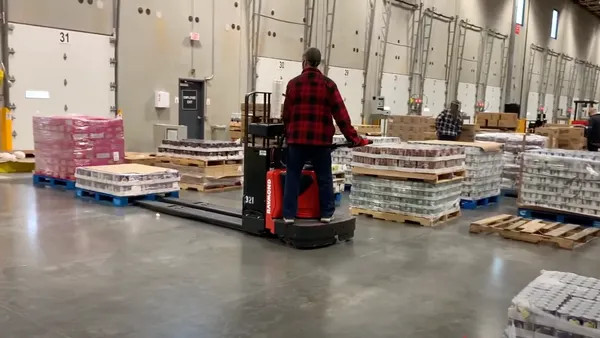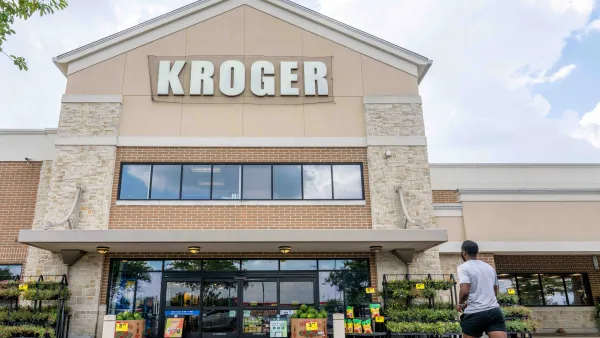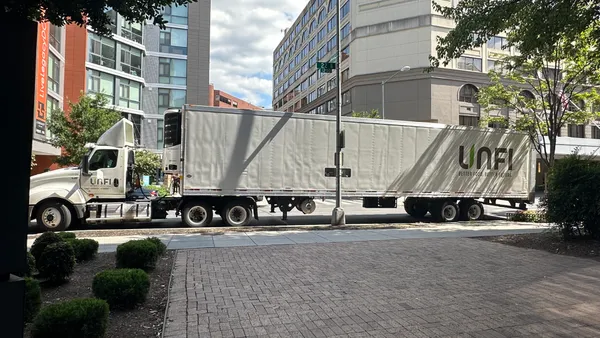Dive Brief:
- Instacart has raised $600 million in a round of funding led by D1 Capital Partners, increasing the company’s valuation to $7.6 billion, according to a company press release. In total, Instacart has raised more than $1.6 billion. Plans for the funding include continued expansion in North America, increasing awareness of Instacart among retail partners and investing in engineering and product development talent.
- Instacart partners with 15,000 grocery stores in the U.S. and Canada, including 300 big-name retailers such as Publix, Kroger, Aldi, Sam’s Club, Albertsons and Walmart Canada. Instacart says it is accessible to more than 70% of U.S. households and more than 50% of Canadian households. The grocer currently employees 600 people throughout North America.
- “The U.S. is nearly a $1 trillion grocery market, and last year we saw almost every major grocer in North America bring their delivery business online in a significant way," said Apoorva Mehta, CEO and Founder of Instacart, in a press release. "We believe we're in the very early stages of a massive shift in the way people buy groceries and we expect that one in five Americans will be shopping for their groceries online in the next five years.”
Dive Insight:
Despite its role up to this point as the most prominent online grocery service, Instacart is showing no signs of slowing down or resting on its laurels.
It appears that Instacart has already earmarked this new investment and will use it for numerous strategic priorities. Notably, Instacart plans to keep expanding even though it has a strong presence with major grocers, and also wants to keep increasing awareness among shoppers. Many traditional grocers are now launching or acquiring their own delivery services, or partnering with others, and Instacart doesn’t want to lose ground.
Instacart also remains in a battle with other e-commerce companies including Amazon, which has 77% household penetration in the U.S. over Instacart’s 70%, though Amazon’s reach goes beyond groceries. Postmates has also recently raised funding and secured a major partnership with Walmart for grocery delivery in Charlotte, North Carolina. Instacart is obviously aware of this activity, and is demonstrating its expertise and understanding of this increasingly crowded space as it continues to push forward.
While it hasn't matched last year's explosive growth in the wake of Amazon's acquisition of Whole Foods, this year Instacart has demonstrated it can still land big name deals with some of the continent’s largest supermarkets. Kroger recently inked a deal with Instacart to expand same-day grocery delivery in 75 markets, and in September, Aldi chose Instacart as its partner for a nationwide rollout of grocery delivery. Instacart also just opened an office in Toronto, demonstrating its plans to further invest in Canada.
"The delivery service is positioning itself as a necessity for grocery retailers that need to compete against Amazon and others," research firm CB Insights wrote in a blog post. The firm posted this infographic, which shows many but not all of Instacart's retailer partnerships.
Instacart is not without its challenges, however. Issues have been raised over Instacart's relationship with its employees, who have voiced concerns about botched tips and low wages. With its rapid growth, technology glitches seem to be cause for concern as well. The other night, Instacart’s site crashed and unhappy shoppers voiced their concerns on social media. There is also the ongoing complaint that Instacart's fees are too high compared to other grocery delivery services.
To maintain its status as the top online grocery service, Instacart will have to work out kinks like this – though it’s likely that other companies will encounter similar challenges and growing pains at some point, too.
As far as its stated goal of going public is concerned, the company is well-positioned for success. According to a new research report from Deutsche Bank, Instacart is a market share winner in grocery e-commerce, and is on pace to surpass $3 billion in grocery orders this year. As a publicly traded company, Instacart would continue to accelerate and improve its operations, and likely solidify its role as the dominant player in grocery delivery for the foreseeable future.











